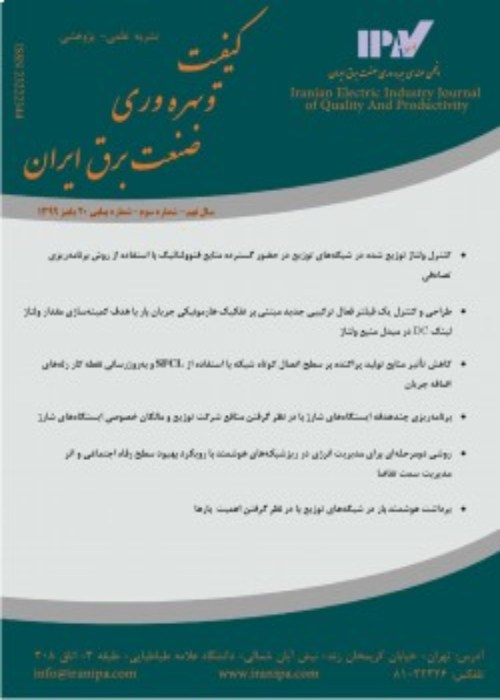Optimal planning of a virtual power plant considering uncertainties in electric vehicles, renewable energy resources, and participating demand response
Due to the progress of renewable energy technologies and the intention of energy policymakers to use these clean and cheap resources, many studies have focused on ways to take advantage of these energies. Limitations, such as low capacity, output power uncertainty, and sustainability problems, make the use of distributed energy resources costly and difficult. Among distributed generation resources, renewable energy resources such as wind energy and solar energy are more environmentally friendly and are used more than other technologies. Despite the many advantages of these resources, their output power depends on such factors as wind speed and solar intensity, which cannot be accurately predicted. For this reason, the infiltration[MSH1] of high levels of these resources into power systems increases system uncertainty and can reduce reliability while system reliability is very important for power system designers and operators, as well as energy consumers. To solve these problems, a new concept, named virtual power plant, is proposed. A virtual power plant is a collection of distributed energy resources that come together to participate in the market. Virtual power plants can efficiently coordinate, aggregate, and manage different distributed energy resources such as distributed generation, energy storage systems, and controllable loads. These plants are flexible agents for a range of distributed energy sources that can be used in wholesale markets to provide services to system operators. The energy management system is the heart of a virtual power plant that coordinates the flow of power from generators, controllable loads, and energy storage devices. This paper proposes a full model for optimal planning of a virtual power plant if uncertainties of distributed generation sources such as wind and solar energy, as well as electrical vehicles, are considered. To prevent the negative effects of the presence of electric vehicles on electricity networks, especially in virtual power plants, it is necessary to charge these vehicles in a controlled manner and with careful planning. In addition, the demand response whose modeling is based on price-based demand response for non-users and encouragement-based for electric vehicles is optimized on two scenarios, and a 32-bus network is studied. The main goal of the research is to maximize the profit of the virtual power plant for the simultaneous use of load response and electric vehicles with the capability of connecting to the grid.
- حق عضویت دریافتی صرف حمایت از نشریات عضو و نگهداری، تکمیل و توسعه مگیران میشود.
- پرداخت حق اشتراک و دانلود مقالات اجازه بازنشر آن در سایر رسانههای چاپی و دیجیتال را به کاربر نمیدهد.


